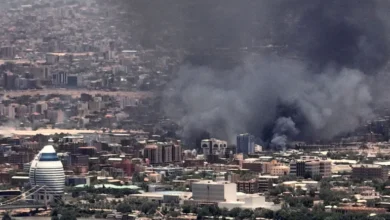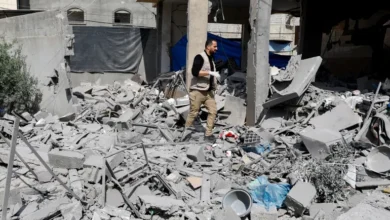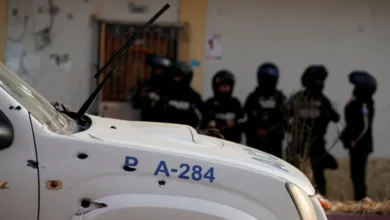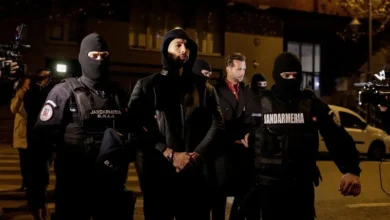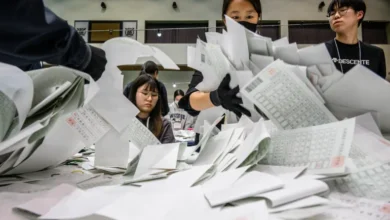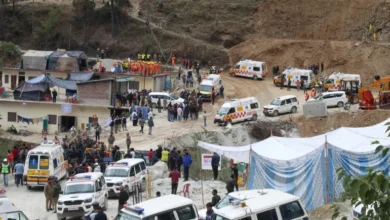Defying protests, Argentina’s Milei unveils decree to deregulate economy
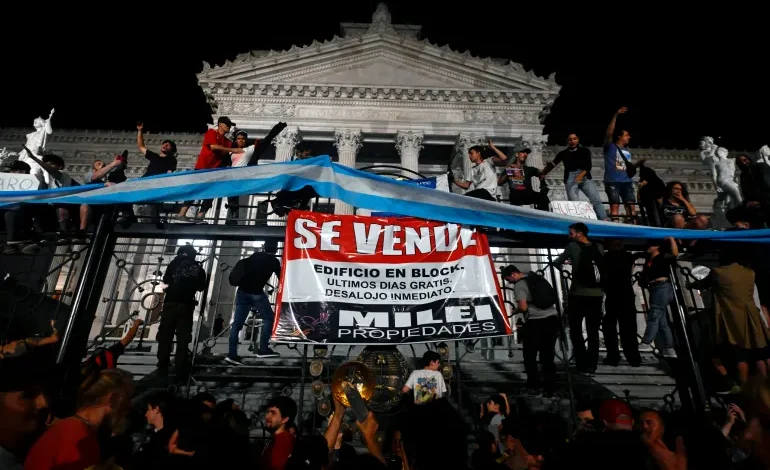
Argentina’s right-wing president has announced sweeping measures to deregulate the economy, in what critics fear could threaten jobs and affordable housing for millions of Argentinians.
Javier Milei, who took office on December 10, said he was wiping out or amending some 300 regulations by emergency decree, changes he deemed necessary to help repair the country’s hamstrung economy.
The changes include dropping laws that regulate Argentina’s rental market and supermarket supplies. They also include removing restrictions on the privatisation of state enterprises.
“The goal is to start along the path to rebuilding the country … and start to undo the huge number of regulations that have held back and prevented economic growth,” Milei said in a televised address on Wednesday night.
The reforms build on austerity measures Milei unveiled last week, including devaluing Argentina’s currency by 54 percent and slashing state subsidies for fuel and transport starting next year.
The strategy is part of the economic “shock” therapy the president says is necessary to rebuild the economy, which is saddled with debt and suffering from 140 percent year-on-year inflation.
However, with 40 percent of Argentinians in poverty, he has warned conditions will worsen before they get better.
Protesters defy threats, police presence
Following the president’s speech, thousands of people took to the streets near the National Congress in Buenos Aires to voice their discontent after an earlier mass protest against austerity the same day, the AFP news agency reported.
“I am here because I am terrified by the decree,” said Nicolas Waiselbaum, a 48-year-old teacher.
Leopoldo Maldonado, a 25-year-old student, said, “The measures are very negative.”
“I’m especially worried about the rent law and the labour reform. It is already very complicated for young people to get a stable job,” he said.
In a bid to stop protesters from blocking traffic earlier in the day, military police and security services lined the streets and photographed some demonstrators trying to reach the city centre. The government threatened to strip welfare from anyone blocking the streets.
Argentinian labour and rights groups criticised the heavy-handed security response as a provocation that threatens democratic freedoms.
“The government is violating the rights of protesters in Argentina,” Gabriel Solano of Argentina’s left-wing Workers’ Party told Al Jazeera. “They want to violate the judiciary and the legislative branch with a series of laws they want to pass. I am very worried about democratic freedoms in Argentina.”
“This reminds me of the dictatorship of 1976 to 1983,” said Eduardo Belliboni, leader of the left-wing movement Polo Obrero and one of the march’s organisers.
Legislative assessment
Milei’s sweeping deregulatory decrees must now be assessed by a joint committee of lawmakers from both chambers of the legislature within 10 days.
Constitutional law expert Emiliano Vitaliani said the decrees can only be undone if both the lower house and the Senate reject them.
Milei, a career academic who describes himself as an anarcho-capitalist, shocked the political establishment with his victory in the presidential election in November.
Disillusioned with decades of recurrent economic crises, marked by debt, rampant money printing, inflation and fiscal deficit, voters were receptive to his radical vision.
However, the burst of anger over his austerity plan shows he is bound to face challenges in his quest to slash the state budget.

